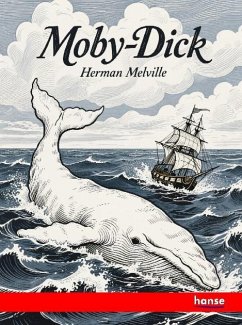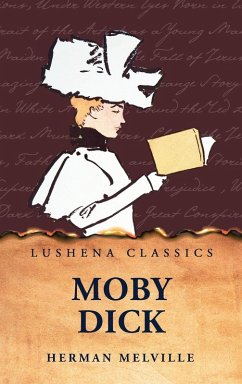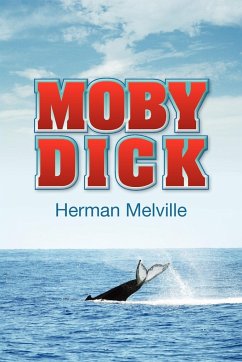
MOBY-DICK
Versandkostenfrei!
Versandfertig in 1-2 Wochen
41,99 €
inkl. MwSt.

PAYBACK Punkte
21 °P sammeln!
Moby-Dick, Herman Melville's magnum opus, is an epic tale of obsession, vengeance, and the unrelenting power of the natural world. At the heart of this masterful work of American literature lies the enigmatic Captain Ahab, a man consumed by his monomaniacal quest to slay the great white whale that took his leg-a quest that leads him and his crew aboard the Pequod on a perilous journey into the deepest, darkest reaches of the human soul. Melville's expansive narrative takes readers on an unforgettable voyage that transcends the boundaries of a mere whaling expedition, delving into the depths of...
Moby-Dick, Herman Melville's magnum opus, is an epic tale of obsession, vengeance, and the unrelenting power of the natural world. At the heart of this masterful work of American literature lies the enigmatic Captain Ahab, a man consumed by his monomaniacal quest to slay the great white whale that took his leg-a quest that leads him and his crew aboard the Pequod on a perilous journey into the deepest, darkest reaches of the human soul. Melville's expansive narrative takes readers on an unforgettable voyage that transcends the boundaries of a mere whaling expedition, delving into the depths of human ambition, fear, and obsession. As the Pequod and its crew traverse the vast expanse of the ocean, Moby-Dick emerges as a profound meditation on the nature of existence, the duality of man, and the eternal struggle between humanity and the unfathomable forces of the universe. Rich in symbolism, vivid detail, and unparalleled storytelling, Moby-Dick is an enduring testament to Melville's literary genius, offering readers a timeless exploration of the human condition and a haunting portrayal of the fine line between obsession and madness. Plunge into the dark waters of Melville's masterpiece, and experience the thrilling, awe-inspiring journey that has captivated generations of readers and continues to leave an indelible mark on the world of literature.













